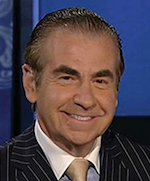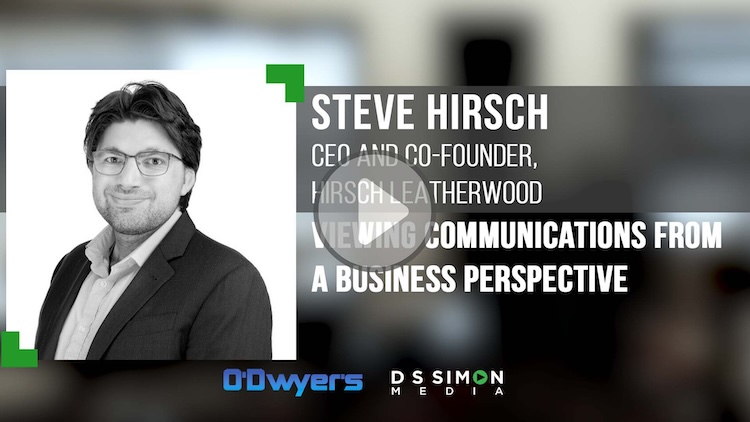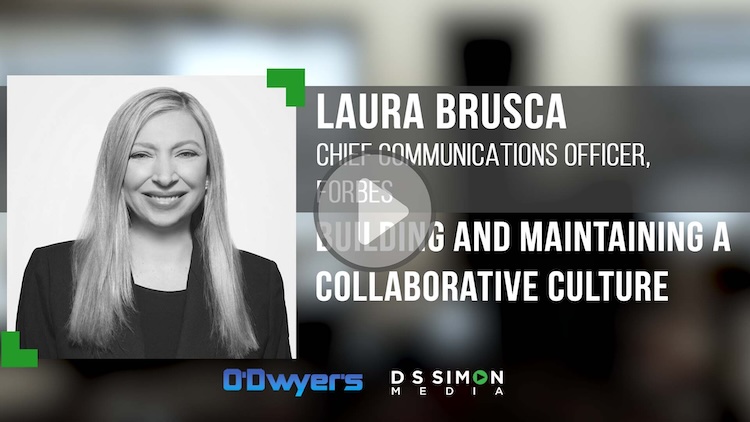 Fraser P. Seitel Fraser P. Seitel |
Say a prayer for Jeff Bezos.
Sure he’s the richest man in the world, at a pre-divorce net worth of $154 billion.
But when you’re public enemy number-one in the eyes of both Donald Trump and Alexandria Occasio-Cortez, you need all the prayers you can muster.
Bezos and the company he founded, Amazon, along with fellow tech industry giants Facebook, Apple and Google, find themselves the current favorite whipping boys of Washington politicians for a variety of sins, from privacy violations to anti-competitive practices to subverting the free press.
Indeed, as the Presidential campaign season rolls into high gear, Big Tech has become the Dominican Republic of industries. And Congress is taking dead aim at breaking up the “Big Four” tech companies that comprise the dreaded FAANGs, with only Netflix spared from current scrutiny.
Here are the combatants.
In one corner are the “bad guys,” the four tech giants who together employ 750,000 Americans, earn $700 billion annually and enjoy an aggregate stock market value of $3 trillion benefitting millions of American shareholders (Full disclosure, including me!).
They also supply an irreplaceable daily service on which hundreds of millions of Americans have come to depend, in most cases charging users $0 for the privilege.
In the other corner are the “good guys,” a motley collection of publicity-seeking politicians, egghead academics and crusading anti-business journalists, hell bent on destroying these four tech titans, primarily because they’ve been too dominant and successful.
Their role model is Congresswoman Occasio-Cortez, who singlehandedly kept nasty Amazon out of Queens, costing her district thousands of jobs, millions in tax payments and the prospect of better lives for tens of thousands of her constituents.
With anti-business, antitrust zealot Elizabeth Warren leading the Democrat candidate charge and weak-kneed Republicans at the Justice Department and Federal Trade Commission joining the opposition chorus, the pressure to break up Facebook, Amazon, Apple and Google will only intensify over the next year-and-a-half. As The New York Times succinctly put it, “When Americans fear the future, they turn to antitrust law.”
Accordingly, with the ominous specter of driverless cars, delivery drones and artificial intelligence around the corner, the Big Tech Four stand squarely in the antitrust crosshairs. So what kind of public relations strategy, in the face of politically-fueled righteous wrath, should these four notoriously closed-mouthed companies adopt?
Here’s the three-part plan I’d recommend:
Be seen
Ever since its Cambridge Analytica data mining debacle, Facebook CEO Mark Zuckerberg and his more loquacious COO Sheryl Sandberg have become gun-shy to go public. The same has generally been true about executives at the other three firms.
This is a losing strategy, especially in a more threatening election climate. What Big Tech needs now is for its highest executives to become more willing to go on television, give speeches and appear before an admittedly hostile and showboating Congress.
One CEO who recognizes this is Apple’s Tim Cook, whose recent commencement speech at Stanford provides a perfect example of what all his fellow CEOs should be doing. After citing the many innovations to advance society for which Silicon Valley should be given credit, Cook acknowledged that companies like his should take “responsibility” for fixing problems in areas like privacy.
The Apple CEO, rather than staying on the defensive, demonstrated that standing up to critics by going on offense is a much better strategy. One tech CEO who would be wise to emulate his compatriot is Bezos. The Amazon CEO abhors the spotlight. But in this environment, there’s no better spokesman for the public benefits of Big Tech than Bezos. A “60 Minutes” interview with the reclusive Amazon founder would be both gutsy and potentially golden to increase the understanding of the true value that these four companies represent in terms of America’s might, reputation and standing in the world.
Be heard
For many years, the standard for antitrust in this country, developed principally by Judge Robert Bork, has been one based on the welfare of the consumer. If companies got too large and anti-competitive, this thinking went, they could charge oppressive prices that consumers would be forced to pay.
But for consumers, Google, Facebook and Amazon are essentially free, and Apple charges a competitive price for its hardware and nominally for its apps. The fact is, consumers adore the services provided by the Big Four, and this argument should be broadcast loudly and frequently by every Big Tech executive.
Another antitrust argument critics proffer is that of “unhealthy concentration;” particularly from Google in search, Facebook in social media and Amazon in e-commerce. Here too, Big Tech needs to fight back, as some of its leaders have begun to do.
Google CEO Sundar Pichai, for example, went on CNN to warn that should America’s tech giants be diminished through legislation or regulation, other countries are ready to step in to help their own companies “become the next Silicon Valley.”
Facebook’s Zuckerberg was more specific, arguing that breaking up his social-media company would simply clear the way for Chinese tech companies, which don’t share American values, to step in and dominate.
Such statements are exactly what Big Tech needs to beat back the half-baked, often irresponsible, “see what sticks” arguments that politicians are wont to throw up.
Be strong
Finally, the Big Tech Four must remain strong in the face of supercilious critics who would dismantle them.
That means continuing to innovate and announce new products. By contrast, last week’s New York City Code Conference, usually a showplace for Big Tech innovation, instead became a piling-on exercise for criticism, led by conference organizer Kara Swisher, who ironically owes her journalistic success to access to tech executives but has become the industry’s biggest turncoat.
The tech companies’ best PR response to the Swishers of the world is to keep on keepin’ on.
That’s what Facebook did last week in introducing its new crypto currency, Libra. The immediate response from Maxine Waters, Chair of the House Financial Services Committee, was typically “upbeat and optimistic.” Said the gentle congresswoman from California, “It’s very important for them to stop right now what they’re doing so that we can get a handle on this. This will be an alternative to the dollar, so this is serious, and we must ask them for a moratorium.”
Notwithstanding the fact that there are already 2,500 crypto currencies in circulation and that Maxine Waters isn’t exactly the second coming of Milton Friedman, her response is typical of the “risk averse/stop them in their tracks” negativism that pervades Washington.
Facebook and the others must stand strong against such naysayers, introducing new products but also contributing to the public good and letting people know. Last week, for instance, Google pledged $1 billion in land and money to work with local governments to build affordable housing. Exactly the right course!
Such public displays of goodwill will help remind people that Facebook, Apple, Amazon and Google are the best businesses our nation has and the envy of the world. Does that mean they should be free of scrutiny? No. Should they be subject to increased regulation in certain areas? Sure.
But the last thing we should do is kill America’s four high-flying golden geese by dismantling them. And the worst thing these companies can do is sit back and take the abuse of self-serving politicians and regulators. Alternatively, they must aggressively seek to win public opinion by showing their FAANGs.
***
Fraser P. Seitel has been a communications consultant, author and teacher for 40 years. He may be reached directly at [email protected].










 Have a comment? Send it to
Have a comment? Send it to 
No comments have been submitted for this story yet.